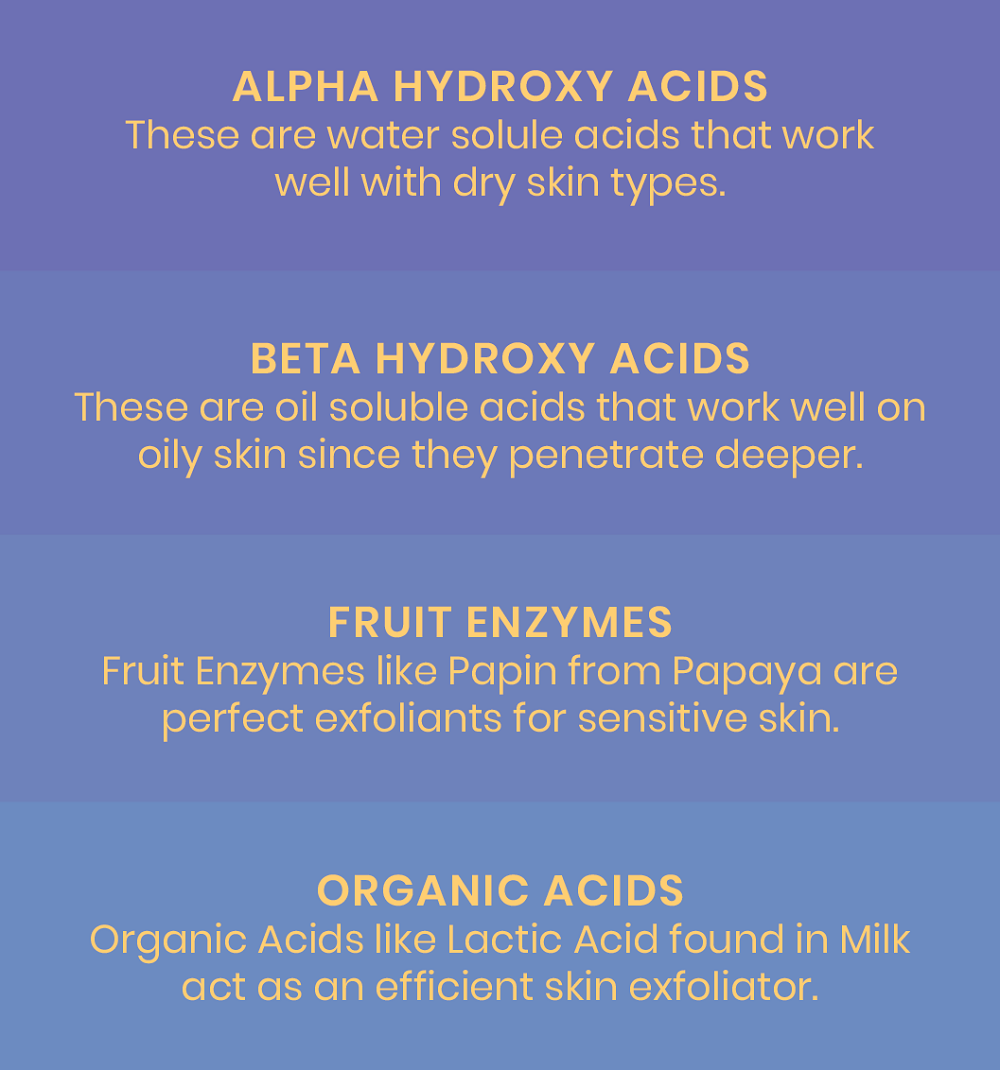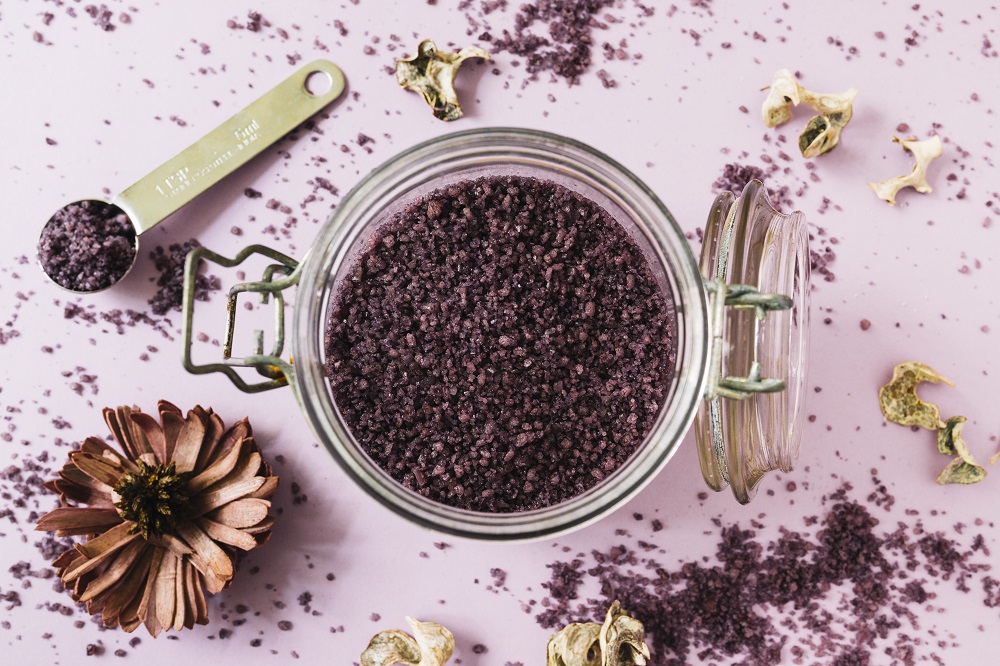"Exfoliating the face and body is incredibly important, as it rids the skin of buildup and dead skin cells"
You may be cleansing, moisturizing, and slathering on the sunscreen — but if you’re not exfoliating, your skin isn’t as healthy as it could be. If your skin is looking dull, grey, and tired, exfoliation is your ticket back to glowing, youthful skin. Exfoliating is the process of removing dead skin cells from the surface of your skin. While it might sound simple, there is actually quite a lot to consider when choosing an exfoliant. Which type of exfoliator should I use? Is a physical exfoliant better than a chemical exfoliant?
Why should you even Exfoliate?
There are multiple benefits of exfoliation, but one of the most convincing ones is simple: your skin will feel fresher which leads to a brighter, clearer complexion. Exfoliation enables products to seep into pores easier. It stimulates the skin renewal process by getting rid of dead skin cells, which helps promote collagen production, which is helpful for minimizing the appearance of fine lines and wrinkles.
Although all skin types can exfoliate, it’s important to be mindful of intensity and frequency if you suffer from any skin issues. Those with sensitive skin should avoid harsh chemicals or any type of scrub that could cause micro injuries to the surface of the skin.
Physical Exfoliation
Physical exfoliation or Mechanical exfoliation involves the buffing away of dead cells using products such as scrubs containing grainy substances, or using devices with abrasive surfaces such as brushes or textured gloves. Treatments including microdermabrasion or dermaplaning also qualify as manual exfoliation because they work by physically scraping off very thin layers of skin.
Who can use Physical Exfoliators?
If you have normal or oily skin you can safely use a physical exfoliant, however, they may be too harsh for those with dry or sensitive skin.
Chemical Exfoliation
Chemical exfoliants are typically much gentler than physical ones and are becoming more popular for at-home use. Chemical exfoliants containing AHAs (Alpha Hydroxy Acids) are suitable for skin that is dry, sensitive or sun damaged. These are water-soluble and therefore do not wash away the skin’s natural oils, allowing the skin to retain some natural hydration. These exfoliants do not penetrate as deeply within pores, which is optimal for those with sensitive skin. Lastly, most dark spots caused by sun damage affect only the very top layer of skin cells, which AHAs can effectively help shed off. Common AHAs include gentle lactic and glycolic acids, which work to speed cell turnover, allowing skin to shed and reveal new skin more quickly, while also acting as a moisturizer for drier skin types due to their water-binding properties. Oil-soluble BHAs (Beta Hydroxy Acids) penetrate deeper into pores making them a good choice for acne-prone or oily skin. Because BHAs effectively address oiliness, this can also have a drying effect for some people; ensure you follow with a moisturizer.
Who can use Chemical Exfoliators?
BHAs are ideal for oily or acne-prone skin due to their pore-unclogging properties. If you have highly sensitive skin, a less intrusive PHA (Poly Hydroxy Acids) exfoliant is good for you. If you have dry skin, opt for an AHAs. As they only work on the skin’s surface, they’ll help it cling onto moisture.
The image below lists out a few common Chemical Exfoliators.

For visible results one must exfoliate their skin 2-3 times a week depending on their skin type and the intensity of the products being used.
Add exfoliation to your skincare regimen and start seeing the results appear on your face!
[DISCLAIMER: Misuse of products containing Acids can cause injury or burns to the skin. Directions must be followed carefully. Always perform a patch test in an inconspicuous area and wait 24 hours to observe signs of irritation before using any product.]

